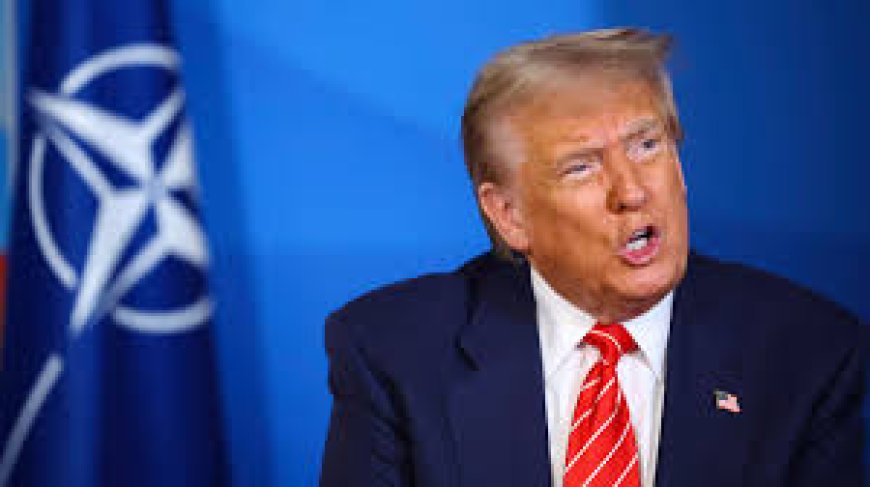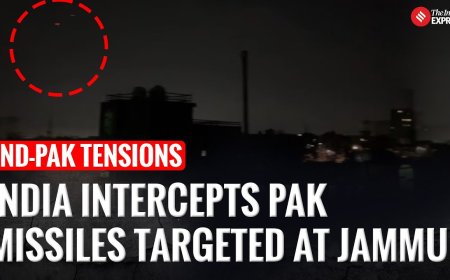Trump compares US strikes on Iran with Hiroshima, Nagasaki bombings: 'Essentially the same thing'
At the NATO summit in The Hague, Trump likens U.S. strikes on Iran’s nuclear facilities to WWII atomic bombings, sparking debate. Analysts weigh impact amid fragile ceasefire and cautious markets.

Trump Draws Controversial Parallel Between US Strikes on Iran and WWII Nuclear Bombings
Former President's Comments Spark Global Reactions; Analysts Warn of Diplomatic Fallout Amid Escalating Middle East Tensions
Washington D.C., June 25, 2025 — In a striking and controversial comparison, former U.S. President Donald Trump likened recent U.S. military strikes on Iranian targets to the atomic bombings of Hiroshima and Nagasaki during World War II. His remarks, made during a televised interview on Tuesday evening, have stirred intense reactions across the international political spectrum and are already fueling broader concerns over potential escalation in the Middle East.
“When you think about it, what we did in Iran is essentially the same thing as what was done in Japan during World War II,” Trump said. “It sends a message—swift, decisive, and unforgettable.”
While Trump did not specify which strike he was referring to, many observers believe he was referencing the recent U.S. drone and missile operations that targeted Iranian military infrastructure following a series of escalating provocations and proxy attacks on U.S. personnel in Iraq and Syria.
Historical Comparison Sparks Uproar
Trump’s comments drew swift criticism from historians, diplomats, and human rights groups, many of whom condemned the equivalence drawn between conventional strikes and nuclear warfare that resulted in the deaths of over 200,000 civilians.
Dr. Ellen Morrison, a historian at the University of Virginia specializing in U.S. military history, called the statement "a deeply flawed and dangerous analogy."
“The Hiroshima and Nagasaki bombings were nuclear events that caused unprecedented civilian suffering,” Morrison stated. “Drawing a parallel to precision drone strikes undermines the gravity of nuclear warfare and ignores the profound difference in scale and consequence.”
Global Diplomatic Repercussions
Iran's foreign ministry issued a formal protest, calling Trump’s remarks "evidence of the U.S. doctrine of unlawful aggression." Iranian state media broadcast the comments widely, fueling public outrage and bolstering the regime’s anti-American narrative.
Hossein Salami, commander of Iran’s Islamic Revolutionary Guard Corps, responded with a stark warning:
“Statements like these expose the true face of American militarism. We will not forget. We will not forgive.”
The United Nations has not yet formally commented, but diplomats in Geneva and New York warned that such rhetoric could undermine ongoing back-channel diplomatic efforts aimed at de-escalation.
Analysts Warn of Investor Risk Amid Escalation
The market responded with caution on Wednesday morning. Defense sector stocks such as Lockheed Martin and Northrop Grumman saw modest gains (+1.4% and +1.1%, respectively), while energy markets braced for volatility, with Brent crude climbing 2.7% to $91.80 per barrel.
Anjali Gupta, geopolitical strategist at Morgan Keegan, stated,
“Whenever we see rhetoric that evokes historical trauma—especially from someone as influential as Trump—it introduces noise into markets and clouds policy outlooks. Investors are now pricing in a risk premium on Middle East-related assets.”
Republican Reaction Divided
Reactions within the Republican Party were mixed. Senator Lindsey Graham defended Trump, saying,
“His point is that overwhelming force, properly applied, can deter conflict. That’s not controversial—it’s classic deterrence theory.”
However, others distanced themselves. Senator Rand Paul tweeted:
“Comparing drone strikes to atomic bombings is not only historically inaccurate but reckless. We need de-escalation, not provocation.”
Democrats, meanwhile, uniformly condemned the remarks. Vice President Kamala Harris called them “a dangerous oversimplification of history that endangers American diplomacy.”
Strategic Calculus: Military or Political Messaging?
Trump’s statement may also be interpreted as a political move to reassert his tough-on-Iran credentials amid his 2024 campaign efforts. Analysts suggest that such remarks appeal to a core segment of his base that prioritizes U.S. military dominance and hawkish foreign policy.
Peter Schultz, senior fellow at the Atlantic Policy Institute, argued:
“This is vintage Trump—appeal to power, not prudence. He’s not talking to the international community. He’s talking to Republican primary voters who view Iran as an existential threat.”
Investor Outlook: Volatility on the Horizon
The markets are expected to remain jittery in the near term, particularly in sectors sensitive to geopolitical instability. Oil prices, defense equities, and emerging market bonds are especially vulnerable to fluctuations driven by escalations between the U.S. and Iran.
Priya Menon, senior economist at Emkay Global, advised:
“Investors should brace for short-term volatility. This is not just about Trump’s words—it’s about a broader narrative of confrontation taking shape. Risk-averse strategies and diversification are prudent at this stage.”
Trump’s comparison of U.S. strikes in Iran to the atomic bombings of Hiroshima and Nagasaki has ignited a storm of reactions, from diplomatic condemnation to market unease. As tensions in the Middle East escalate and political rhetoric in the U.S. intensifies ahead of the 2024 presidential election, investors and policymakers alike are navigating an increasingly volatile landscape.
While the former president’s remarks may galvanize some domestic supporters, they also risk alienating allies and stoking instability in a region already on edge.
What's Your Reaction?
 Like
0
Like
0
 Dislike
0
Dislike
0
 Love
0
Love
0
 Funny
0
Funny
0
 Angry
0
Angry
0
 Sad
0
Sad
0
 Wow
0
Wow
0












































































